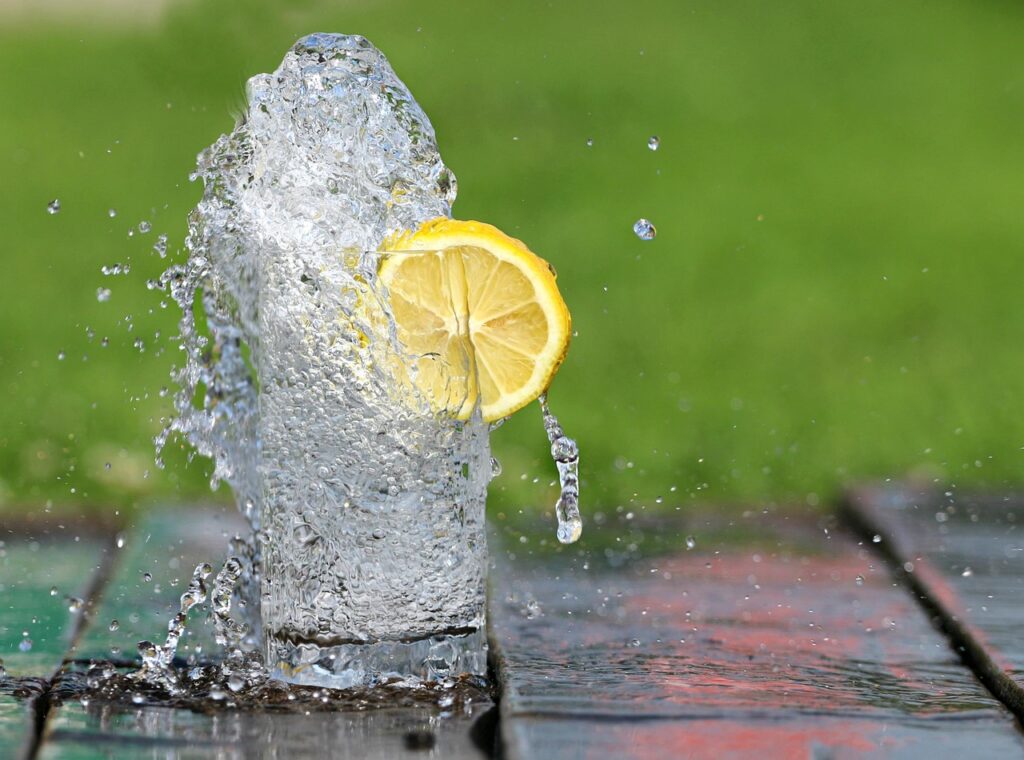When comparing electrolytes vs water, most people assume that when it comes to staying hydrated, drinking plenty of water is enough. While water is essential for life and hydration, it’s only part of the equation. Electrolytes—minerals like sodium, potassium, calcium, and magnesium—play a crucial role in maintaining fluid balance and supporting key bodily functions. Without them, your hydration efforts might fall short.
Medical Disclaimer: Iam not a doctor or a licensed medical professional. All content on this website is for informational and educational purposes only and is not intended as medical advice, diagnosis, or treatment. Always seek the advice of your physician or other qualified health provider before starting any new supplement, diet, or exercise program. Never disregard professional medical advice or delay seeking it because of something you have read on this site.

What Are Electrolytes?
In the world of electrolytes vs water, think of your cells as a restricted club. Plain water is like a guest standing outside the door; it needs an escort to get in. Electrolytes (specifically sodium) act as the ‘VIP escort’ that pulls water across the cell membrane. Without them, you can drink gallons of water that simply stay in your digestive tract or flush out through your kidneys without ever actually hydrating your cells. Electrolytes are charged minerals found in your blood, urine, and bodily fluids. They conduct electrical impulses that help regulate nerve and muscle function, acid-base balance, and hydration. The main electrolytes your body needs include:
- Sodium: Helps control blood pressure and blood volume.
- Potassium: Critical for muscle contractions and heart function.
- Calcium: Vital for muscle function, nerve signaling, and bone health.
- Magnesium: Supports muscle relaxation and energy production.
- Chloride: Works with sodium to maintain fluid balance.
- Phosphate: Important for energy storage and cell repair.
The Science Of Electrolytes vs Water
When you sweat—whether from exercise, heat, or illness—you lose not only water but also electrolytes. Simply replenishing with plain water can dilute your body’s electrolyte levels, leading to an imbalance. This condition, known as hyponatremia, can cause symptoms ranging from headache and nausea to muscle cramps and confusion. Drinking plain water during an intense workout is like pouring water onto a bone-dry, crusty sponge—most of it just runs off. However, adding electrolytes turns that sponge into a damp, absorbent one that actually holds onto the moisture. When we look at electrolytes vs water, we see that minerals are what allow your tissues to actually retain the hydration instead of just passing it through.
Electrolytes help your body absorb and retain water effectively. They also enable your muscles and nerves to function properly. Without adequate electrolytes, hydration becomes less efficient, and your body can’t perform at its best.
Signs You Might Be Electrolyte Deficient
Common signs of electrolyte imbalance include:
- Muscle cramps or spasms
- Fatigue or weakness
- Dizziness or lightheadedness
- Irregular heartbeat
- Confusion or irritability
- Headaches
If you experience these symptoms, especially after intense sweating, dehydration, or illness, replenishing electrolytes is important.
How to Restore Electrolytes
Food Sources
Natural foods are excellent sources of electrolytes:
- Sodium: Table salt, olives, pickles
- Potassium: Bananas, sweet potatoes, spinach
- Calcium: Dairy products, leafy greens, fortified plant milks
- Magnesium: Nuts, seeds, whole grains, legumes
Drinks and Supplements
When comparing electrolytes vs water, we must look at the bioavailability of the solution. Plain H2O lacks the ionic charge necessary to maintain osmotic balance, which can lead to fluid lingering in the extracellular space. By including specific mineral cofactors, we optimize the rate of cellular absorption, ensuring that the hydration actually reaches the mitochondria where it is needed most. Sports drinks often contain electrolytes but may be high in sugar and artificial ingredients. Electrolyte powders, tablets, or drinks with balanced mineral content can be better choices.
If you’re active, exposed to heat, or recovering from illness, consider electrolyte supplements or specialized hydration formulas to maintain balance.
Final Thoughts
Hydration isn’t just about drinking water. Your body requires a delicate balance of electrolytes to regulate fluids, muscles, nerves, and overall health. Being mindful of your electrolyte intake—through diet or supplements—can enhance hydration, prevent imbalances, and support your body’s best performance.
If you’re regularly active, in hot climates, or feeling symptoms like cramps and fatigue, it’s time to think beyond just water and make electrolytes part of your hydration routine.
If you found the science behind this interesting, you’ll love our deep dive into Liquid I.V. vs. LMNT: Which Electrolyte Is Better for Your Lifestyle? Read more here to see how it fits into your daily routine.”
About the Author
Founder Joe is a health researcher specializing in clinical data translation. Using Stanford-level nutritional science and CDC health literacy standards, they provide independent, evidence-based analysis to help you find the best supplements for heart health and weight loss with absolute confidence.